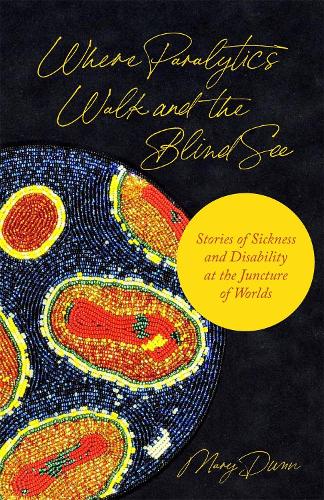
Where Paralytics Walk and the Blind See: Stories of Sickness and Disability at the Juncture of Worlds
(Hardback)
Publishing Details
Where Paralytics Walk and the Blind See: Stories of Sickness and Disability at the Juncture of Worlds
By (Author) Mary Dunn
Princeton University Press
Princeton University Press
27th September 2022
United States
Classifications
Tertiary Education
Non Fiction
Disability: social aspects
Philosophy of religion
Roman Catholicism, Roman Catholic Church
History of the Americas
362.10971409032
Physical Properties
Hardback
224
Width 140mm, Height 216mm
Description
An exploration of early modern accounts of sickness and disabilityand what they tell us about our own approach to bodily difference
In our age of biomedicine, society often treats sickness and disability as problems in need of solution. Phenomena of embodied difference, however, have not always been seen in terms of lack and loss. Where Paralytics Walk and the Blind See explores the case of early modern Catholic Canada under French rule and shows it to be a period rich with alternative understandings of infirmity, disease, and death. Counternarratives to our contemporary assumptions, these early modern stories invite us to creatively imagine ways of living meaningfully with embodied difference today.
At the heart of Dunns account are a range of historical sources: Jesuit stories of illness in New France, an account of Canadas first hospital, the hagiographic vita of Catherine de Saint-Augustin, and tales of miraculous healings wrought by a dead Franciscan friar. In an early modern world that subscribed to a Christian view of salvation, both sickness and disability held significance for more than the body, opening opportunities for virtue, charity, and even redemption. Dunn demonstrates that when these reflections collide with modern thinking, the effect is a certain kind of freedom to reimagine what sickness and disability might mean to us.
Reminding us that the meanings we make of embodied difference are historically conditioned, Where Paralytics Walk and the Blind See makes a forceful case for the role of history in broadening our imagination.
Reviews
"An excellent demonstration of what is possible when one marshals the skills of a historian of religion to 'make room for the creative apperception of sickness and disability beyond the measure of the norm'."---Mark Brians, Reading Religion
Author Bio
Mary Dunn is associate professor of early modern Christianity at Saint Louis University. Her books include The Cruelest of All Mothers and Religious Intimacies.
